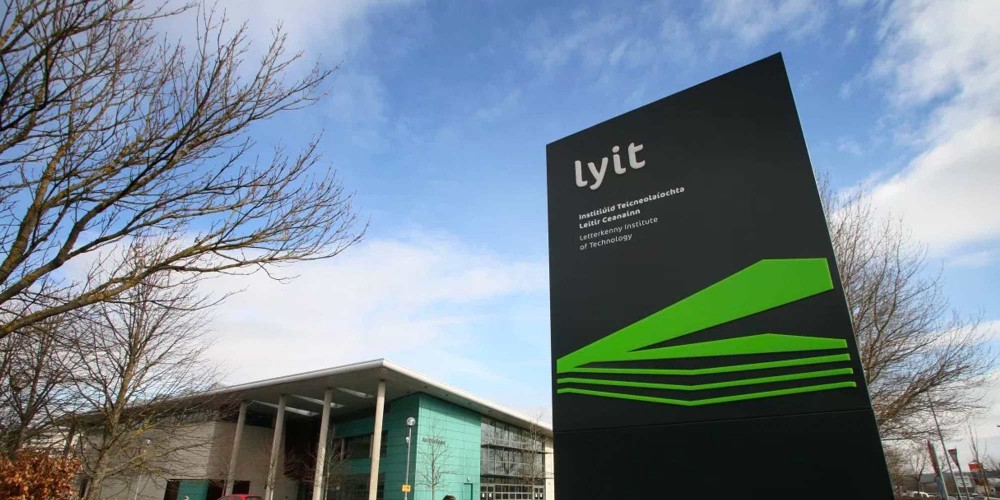
Building LYIT Research Capacity
Who we are
We are Letterkenny Institute of Technology (LYIT) and we are focused on delivering for our nationally significant region through collaboration with key national and regional stakeholders. LYIT is a member of the Connacht-Ulster Alliance (CUA) consortium with IT Sligo and GMIT that is working towards achieving Technological University (TU) status.
LYIT’s Mission-based Performance Compact (Cycle 1) February 2014 outlined that LYIT, recognised the challenging context and environment for research at the time, but retained the ambition to continue to build world-class research capacity for the benefit of our learners and the wider stakeholder community.
What we did / how we did it
To achieve our ambition, we very actively pursued linkages with universities, particularly on a crossborder basis, to build research capacity at LYIT that matched our industry and the natural resources of our region.
We set targets in our first compact for:
- Collaborative Interreg VA Funding proposals under the Research and Innovation theme
- Collaborative submission for Horizon 2020 funding
We sought to capitalise on a strong internal strategic commitment, formal university and other HEI partnerships, availability of cross-border funding, opportunities in applied research, and LYIT’s strong links with industry and public bodies.
Impact achieved
We achieved a transformation in LYIT research where we are partners in three important Interreg VA funded research projects, and involved in a Horizon 2020 project focused on the marine. These engagements have allowed us to deliver enhanced supports to industry in our region via our EI
supported Technology Gateway.
In June 2019, the Institute was also successful in its application to QQI to obtain delegated authority to award PhDs in Computing. Key to achieving this status was the Institute’s ability to demonstrate the significant growth in research activity over the period 2014 – 2019.
The key research partnerships:
Bryden Centre (Renewable Energy)
The Bryden Centre project is a ‘virtual competence centre’ that supports industry-led applied/precommercial collaborative research on a cross-border, interregional basis that is focused on two specific forms of renewable energy, which are considered to have the greatest sustainable potential and widest applicability:
- Marine renewable energy; and
- Bio-energy
Using a Doctoral Training Centre model, the Bryden Centre (and the five partner research institutions – Queen’s University Belfast, Letterkenny Institute of Technology, University of Highlands and Islands, Ulster University, AgriFood & Biosciences Institute) will recruit 34 PhD students (and 6 PostDoctoral Research Associates – PDRAs). LYIT is the lead institution for 7 PhD candidates. The Institute benefits from €2.7m worth of funding to cover studentships, PDRA’s, an administrative post to support the project and equipment. The Bryden Centre’s strong commitment to collaboration ensures that all research projects have supervisors from at least two of the academic partners; this provides access for LYIT researchers to established industry leaders, such as, companies based at the European Marine Energy Centre (EMEC) in Orkney.
Centre for Personalised Medicine
The €8.6 million Interreg VA funded Centre for Personalised Medicine (CPM) was established in April 2017. This project brings together a total of 14 partners from academia, health services and industry; the academic partners are Ulster University, LYIT, University of the Highlands and Islands, and NUI Galway. The aim of the CPM is to enhance the regional research capability while serving as a magnet for regional and FDI industry to create innovative products and new optimised care pathway tools in priority disease areas for patients and commercial benefit.
North West Centre for Advanced Manufacturing (NW CAM)
This €8.5 million Interreg VA funded project brings together 8 businesses and 4 academic institutions to deliver an Advanced Manufacturing Super Cluster based out of the North West. The academic partners include LYIT, Ulster University, University of Glasgow, and IT Sligo. The 15 individual Research & Innovation projects are led by investigators who are world leaders in their respective fields and delivered by 13 post-doctoral researchers and 13 PhD students that are creating innovative solutions for the challenges faced by the industrial partners.
TAOIDE
The TAOIDE project (2016-2020) received €3.2 million of funding from the EU’s Horizon 2020 programme to develop a generator for marine energy systems with partners Ocean Renewable Power Company (ORPC), MaREI at UCC, Fraunhofer Institute for Wind Energy Systems (Germany), and SKF Limited (bearing and seal manufacturer). MaREI is the SFI supported marine and renewable energy research, development and innovation centre at UCC. Specifically, the partners will develop a fully-integrated generator to grid energy delivery system with high reliability and availability, suitable for use in multiple architectures of marine renewable energy systems.
What we learned
A strong commitment to regional stakeholders opened the door to exciting opportunities for LYIT with leading university partners, gave greater momentum to research capacity building efforts at the Institute, and LYIT is now better placed to address the research, innovation and educational needs of industry in the North West region.